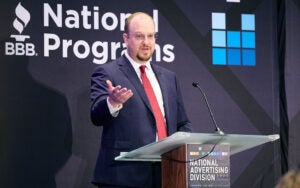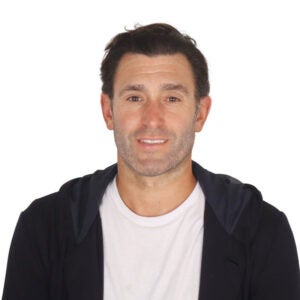 As the ad industry races to embrace mobile, social, data targeting and ad tech, Young & Rubicam (Y&R) CEO David Sable says it’s forgetting about the consumer.
As the ad industry races to embrace mobile, social, data targeting and ad tech, Young & Rubicam (Y&R) CEO David Sable says it’s forgetting about the consumer.
Audience targeting? Misses out on potential customers. Ad blocking? A reflection of the unchecked proliferation of ads. Sponsored content? It’s been around forever.
But he also realizes ads need to get better, especially for mobile experiences.
“In early radio, they say you used to be able to hear the rustling of the newspapers, because they would read the news from newspapers. Early TV was people standing in front of microphones reading radio scripts,” Sable said. “We are at that stage online, where we are still reading radio scripts in front of the TV.”
Sable talked with AdExchanger at the DMEXCO conference about where he sees hot air in the digital ad landscape.
AdExchanger: You don’t like hypertargeting. What do you make of P&G’s recent announcement that it’s pulling back on its Facebook targeting?
DAVID SABLE: It doesn’t take a genius to figure it out. If all I’m going to do is target the narrowest group, I’ve lost the ability to inspire someone to buy my product.
What’s an example of that?
The Oreo Super Bowl “Dunk in the Dark” tweet. According to TechCrunch, only 1% of the audience reach was an Oreo audience. If you believe in hypertargeting, it was a piece of shit. If you believe it was as good as broadcast TV, it was great. Irwin Gottlieb, the head of GroupM said if you wait until someone is 33 to show them their first Mercedes-Benz, what’s the chance of them buying it? You start [advertising] when they are 18, 17 or earlier. You know they are not going to buy it. But you inspire them.
Does retargeting run into the same issues?
If retargeting worked as well as everyone claims it does, every company that retargeted would be the most fabulously wealthy, successful company in the world. The truth is, it pisses people off, because 99% of the time you have no idea if I actually looked at the product. Maybe I tried [the item] on and it didn’t fit. Maybe I wanted to give it as a present and the friend didn’t want it.
Retargeting and hypertargeting suggest that you have data that can get me to buy the purple pants with the pink embroidery. But we couldn’t predict Brexit. We are not able to predict the election in the US right now, and that’s as binary as it gets. Purchase is not binary.
Where does data make sense?
Look, I owned a catalog business. I worked at Wunderman, which is all about targeting and data. Data informs you, it gives you insight, it helps give you a sense of history. Like any good catalog business, you need people you know are going to buy, and then I need lookalikes, and then I need to experiment with a few others.
How has programmatic affected the digital landscape?
There has always been programmatic buying in the industry. People used to buy weight, or reach and frequency, and look for CPM. They didn’t know what they are buying. Programmatic is an evolution of where we were.
What do you make of Snapchat?
Madonna released her album on Snapchat [in 2015] and it was the first disaster she ever had in her career. People need to listen to a song enough to get into it, and need one key song to play over and over. She put it up there, and it disappeared. Adele did the opposite. She put out one song, shared the hell out of it, and said if you want the rest, go buy it. Her [album sales] numbers were the biggest since the 1990s.
What’s causing ad blocking?
People have complained about ads ever since they started to proliferate, especially on TV. Or when you download something and it takes five minutes because everyone is trying to serve you an ad. Just a few ads in a newspaper or magazine works. It doesn’t have to be targeted 100%, like you are the only person to see it. That’s a bad marketing strategy, because you create a smaller and smaller circle of people who see your ads.
Sponsored content has risen in popularity. Would it be a solution to ad blocking?
Sponsored content? Hello. It’s simple. I wasn’t the first person to do it. When I was an [agency] kid in 1977 and there were three networks in America, and “The Wizard of Oz” was on every two years, it was a big event. I had this idea to sponsor it for Kinney. Ruby slippers, Kinney Shoes, it all fit. We integrated it into the stores, did special ads around this thing. I don’t understand why it’s any different than it was, except that there are more opportunities, more channels.
This interview has been condensed and edited.













